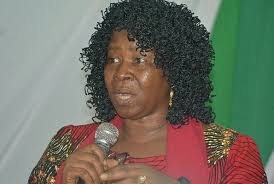Etim Ekpimah
ActionAid Nigeria has asked the Federal Government to review upwards the appropriations for agriculture, health, and education, noting that the current allocations for the three sectors have fallen below international benchmarks.
As an antipoverty non-governmental organisation working vigorously to fight poverty and promote social justice in the 36 states and the FCT for 20 years, it says further reduction in the allocations for the three sectors will exacerbate poverty and inequality in the country.
A statement signed by the Country Director, Ene Obi, and made available to journalists on Tuesday, noted that poverty can be eradicated if rights, redistribution of resources and resilience is prioritised.
Obi added that it was on this premise that AAN has followed with keen interest the implementation of the 2020 budget and the presentation of the 2021 budget proposal to the joint sitting of the National Assembly on October 8.
According to Obi, as the budget is likely to suffer a deficit of N5.9trn, which is about 24 per cent of the total budgetary allocation, it urged ministries, departments and agencies (MDAs) to adopt a bottom-up approach to budget creation.
She explained that states and local governments should aggregate their own budgets, to exact deeper developmental impact in the rural communities, adding that the budgetary process should be participatory and encompassing.
“The budget allocations in the 2021 budget to these three key sectors should be reviewed upwards, given that they are already falling below the international benchmarks. For example, for agriculture, the international recommended benchmark is 10%, according to the AU 2003 Maputo Declaration. Unfortunately for Nigeria, agricultural allocation is mere 1.73%, health 4.16% and education 7.54%. Further reduction will exacerbate poverty and inequality in the country.
“A coordinated framework should be established to ensure that funds allocated to Health, Education and Agriculture are properly administered, ensuring value for money and an integrated approach.
“The budget should be devoid of vague and abstract terms; the budget information should be complete and concise. All allocations should be channelled towards concrete deliverables, targeting human and infrastructural development.
“The Nigerian Government should open public debate before entering loan contracts and should enhance its capacity to offset these loans before obtaining more of the same. Furthermore, loans should not be used for recurrent expenditures such as salaries, traveling allowances, and more,” she said.
Obi said the total budget of N13.08tn with an aggregate revenue projection of N7.886tn are perceived overly ambitious. Given that, she said the downward spiral trend of the economy forced the Federal Government to review the 2020 budget, in which total FG expenditure was revised downwards from N10.594trn to N10.523trn.
She added, “Likewise, key benchmark revenue assumptions were revised downwards. Crude oil price benchmark price was revised to $25 pb from $57 pb, crude oil production to 1.94 mbpd from 2.18 mbpd and average exchange rate adjusted from N305/$ to N360/$1. This revision of the 2020 budget was announced during the Federal Executive Council (FEC) meeting which held on the May 13th, 2020.
“There has been continued shortfall in revenue from oil due to the Covid-19 pandemic, which may render Nigeria incapable of meeting her 2021 revenue targets.
“A budget deficit of 5.19trillion is expected to be funded through loans from both the international and domestic institutions. This constitute about 24% of the total Appropriation Bill. With the dwindling revenue occasioned by falling oil prices, non-remittances, leakages etc, the tendency that borrowing will continue in 2020 to fund the budget is likely.
“This is a major concern as the debt profile keeps pilling and to substantiate this, the Debt Management Office (DMO) showcases the nation’s total debt stock at N31.009 ($85.897b) as of June 30th, 2021.
“The Health, Education and Agricultural sectors are not yet given the attention required given their strategic importance in pioneering the economy.”
She stated that a report by the World Poverty Clock, asserted that Nigeria has overtaken India as the poverty capital of the world and the most vulnerable groups include women and children. Nigeria currently has more than 82m of its people dwelling under poverty.

